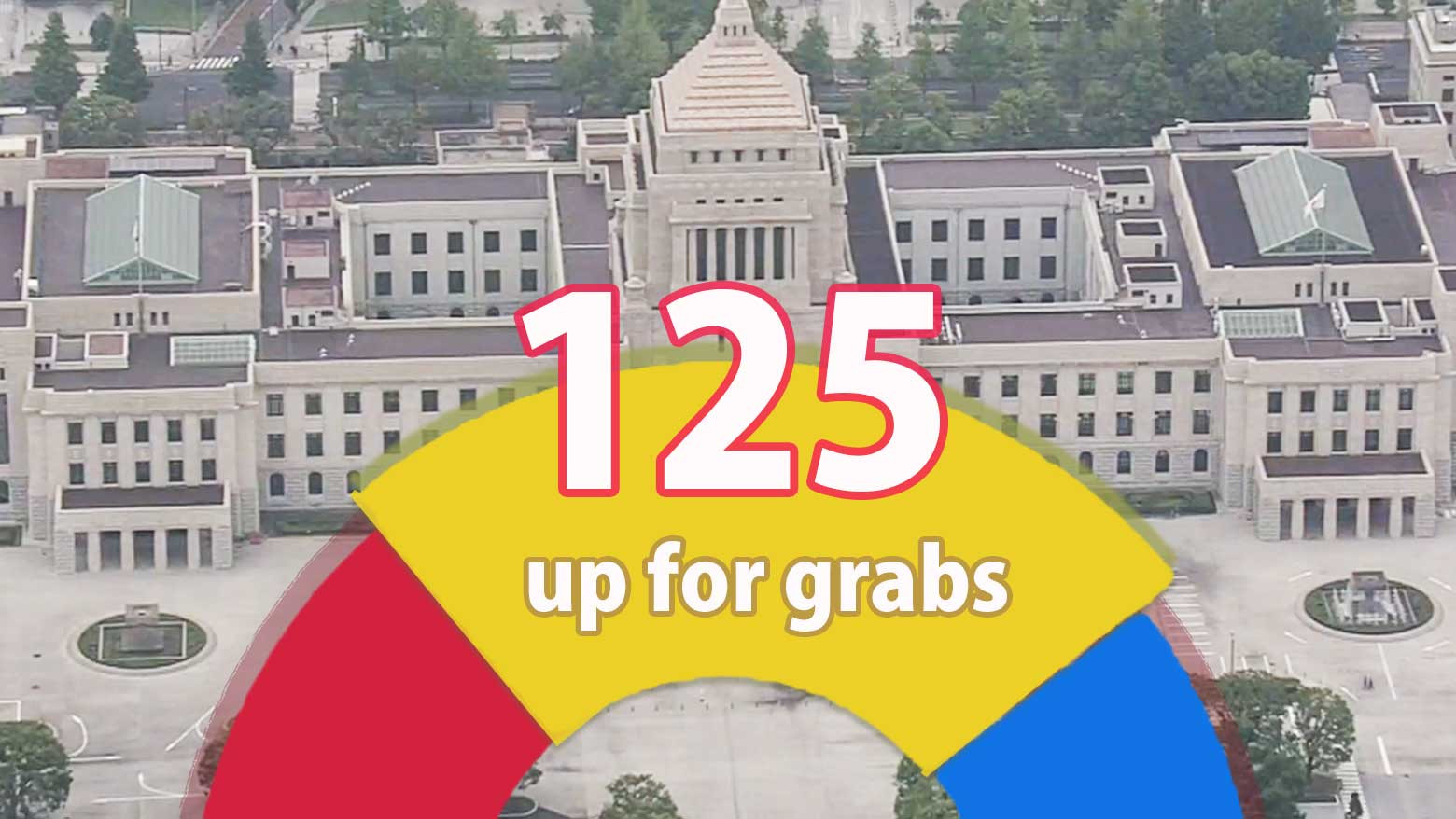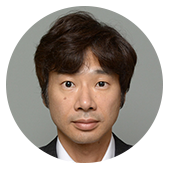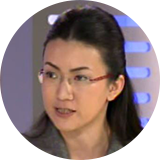Here are calls of nine political leaders on the first day of the 18-day campaign.
Liberal Democratic Party President/Prime Minister Kishida Fumio
"In the wake of Russia's aggression in Ukraine, we will confirm whether we are fully prepared to protect our country, and the lives and livelihoods of our people. We will do this carefully by reviewing the national security strategy, Japan's basic defense plan.
Prices are surging on a global scale due to the Russian aggression. In other words, this emergency is why costs are soaring. We will resolutely carry out specialized measures to support the energy sector, as well as the food sector. I would like you to make a firm decision on who should be given the task of achieving political stability, to overcome these challenges, and open up the future."

Constitutional Democratic Party President Izumi Kenta
"The Constitutional Democratic Party has continuously been saying that we will fight recent high prices, calling it the 'Kishida inflation.' All of you cherish your livelihoods, household budgets and savings. Politicians can't ignore that. The key issue in this election has shifted to rising prices. That means, if opposition parties including ours raise our voices, we can make a difference. A crowd of ruling party lawmakers who can't say anything to the prime minister is meaningless. What you need now are intense sessions in the Diet. There are still many things that need to be changed."

Komeito Chief Representative Yamaguchi Natsuo
"What is required of politics right now is to relieve the people of anxieties. We must instead deliver peace of mind. Komeito will rebuild the economy, build a social security system that protects all generations from children to the elderly, and strengthen Japan's national security. We will take on these three challenges. Komeito will move Japan forward. Please give us your mandate."

Nippon Ishin (Japan Innovation Party) Head Matsui Ichiro
"Government officials and politicians have a very narrow vision. Prime Minister Kishida plans to create a system that would grant you redeemable points if you save energy. That is to avoid a power shortage this summer. But if you go without air-conditioning, you may suffer heatstroke. We have proposed allowing safe nuclear power plants to be operated for a limited period of time. But there has been no response. It is the role of us politicians to face the reality and protect your livelihood."

Democratic Party for the People President Tamaki Yuichiro
"Japan is the only country where the real wage index has been falling for the past 25 years. Our vision for society is extremely simple. If you put in the effort to get a job and work hard, your wages should be raised. We want you to lead day-to-day life with a sense of security. The current politics is not doing its part to achieve that, so we want to change this country with a new approach."
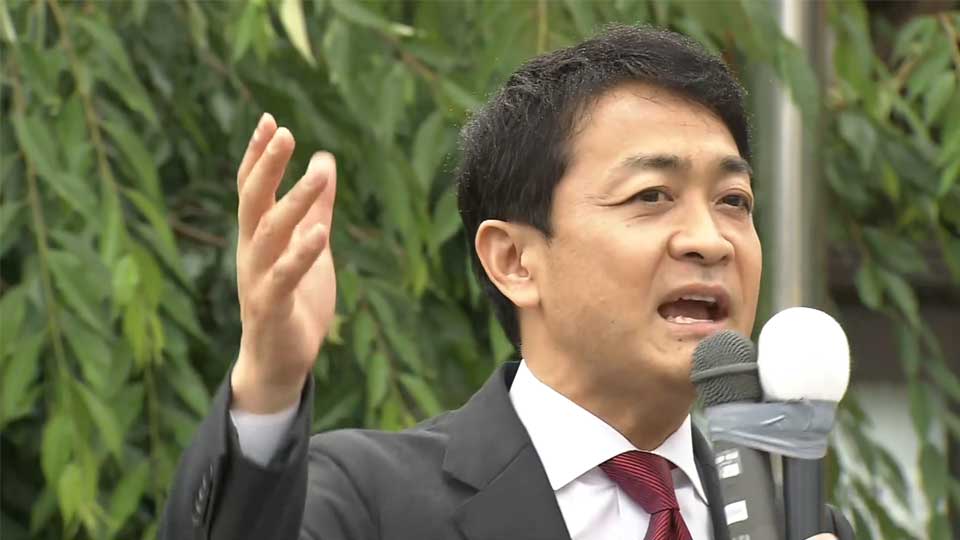
Japanese Communist Party Chairperson Shii Kazuo
"We will cut the consumption tax to 5 percent and cancel the new invoice system. We will impose a temporary tax on the reserves held by large companies, which have ballooned under Abenomics. An annual tax of 2 percent will amount to 10 trillion yen over 5 years. We would use that money to support small and medium-sized businesses to raise the minimum wage to 1,500 yen."
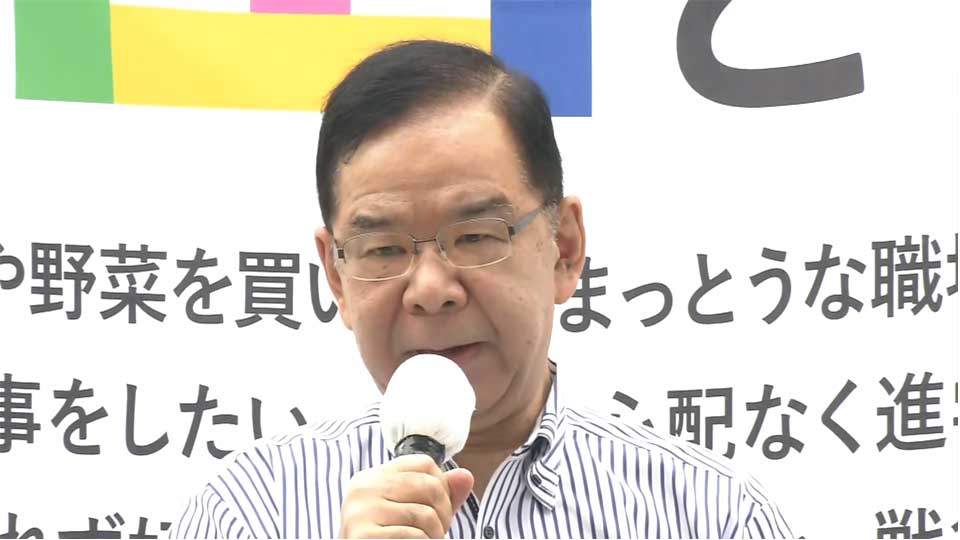
Reiwa Shinsengumi Leader Yamamoto Taro
"To protect our country means to protect your livelihoods. By raising individual purchasing power, money will circulate in society. What is the top priority issue? Please support us so we can abolish the consumption tax. Now is the time to retrieve the hopes and dreams of people living in this country."
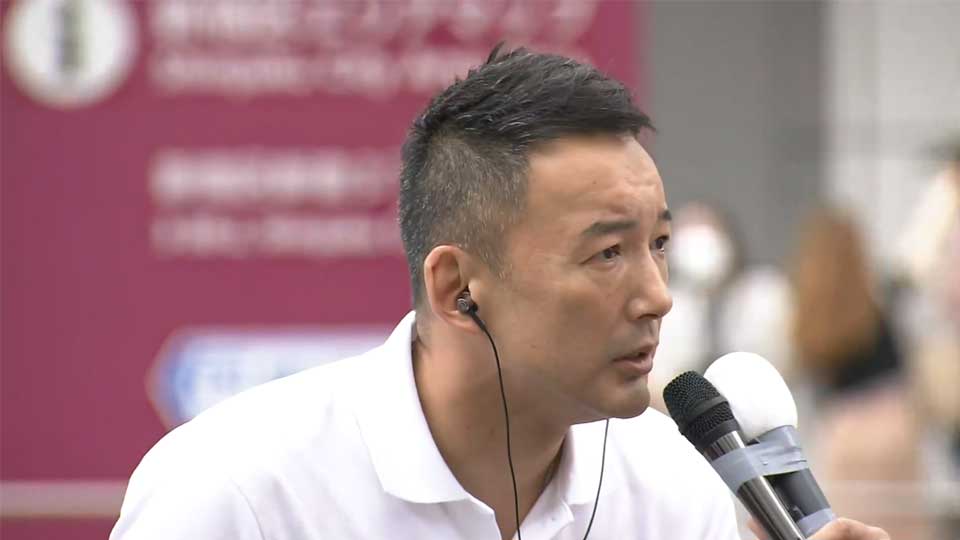
Social Democratic Party Leader Fukushima Mizuho
"Peace, no matter what. People's lives first. Never allow war. What Japan should do is achieve peace based on Article 9 of the Constitution."
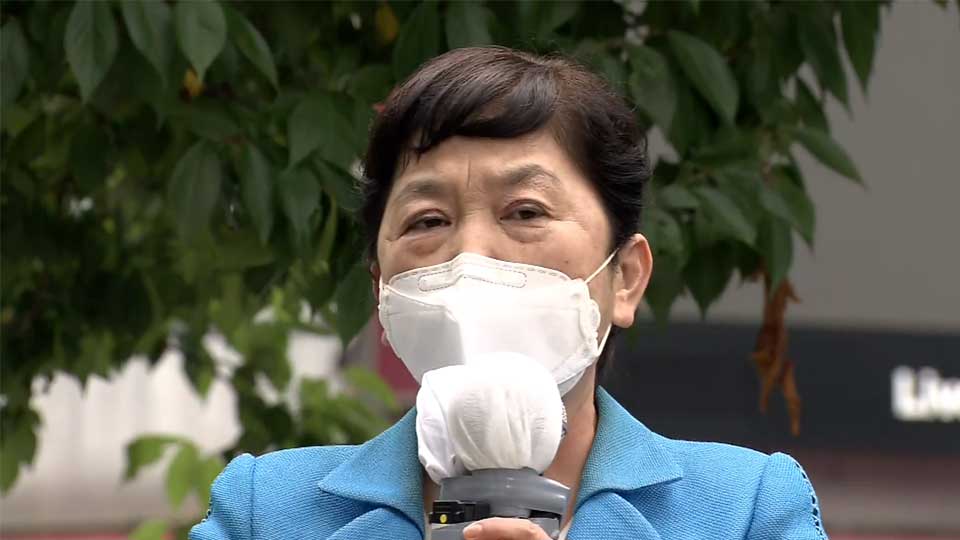
NHK Party Leader Tachibana Takashi
"People living on welfare, as well as students, do not have to pay NHK receiving fees. We want to make it free for pensioners too, or at least cut the fees in half."

545 candidates
Members of the Upper House are elected for six-year terms. Elections are held every three years, with half of the seats up for grabs. This time, there are 124 seats plus one extra to fill a vacancy, which makes 125 in total.
Of those 125 seats, 75 will be decided based on electoral districts. The remaining 50 will be filled through proportional representation.
The total number of candidates contesting seats in this election is 545.

Target numbers
The ruling coalition is aiming to keep its majority in the Upper House. The two parties already hold a majority in the more powerful Lower House. The governing coalition wants to maintain control of the two chambers to ensure the passage of bills.
The LDP and Komeito must win at least 55 of the 125 open seats to gain a majority. Some political observers say that appears to be achievable, even if the coalition loses some seats.

Izumi Kenta, leader of the largest opposition party, the CDP, says his goal is to win a majority of the contested seats (63) by allying forces with all other opposition parties and groups.
Analysis: Masuda Tsuyoshi, NHK World Senior Political Commentator
The upcoming Upper House election will be a litmus test of the Kishida administration. Kishida took power last October. Upper House elections are not about choosing new governments, so his job is not at stake this time.
Tackling the coronavirus still is a major priority, but it's not the only one by any stretch.
Russia's invasion of Ukraine is shattering the global security framework and causing prices to surge in Japan, just like in other parts of the world. High prices for food and energy are starting to impact people's lives on a day-to-day basis.
The ruling coalition led by Kishida plans to offer subsidies to businesses so they can tackle the problem more flexibly. In contrast, the opposition parties want to ease the burden on the public directly. Many are pledging to lower the consumption tax rate, and some support cash handouts.
In the longer-term, constitutional amendment is in sight. The LDP has long been pushing for a revision. Its coalition partner Komeito, Nippon Ishin and the Democratic Party for the People are in favor of changes to the constitution, which has not been amended since it took effect after World War II.
Debate mostly centers on Article 9, which stipulates the "Renunciation of War." Kishida says it should more clearly define the role of Japan's Self-Defense Forces.
RENUNCIATION OF WAR
Article 9. Aspiring sincerely to an international peace based on justice and order, the Japanese people forever renounce war as a sovereign right of the nation and the threat or use of force as means of settling international disputes.
In order to accomplish the aim of the preceding paragraph, land, sea, and air forces, as well as other war potential, will never be maintained. The right of belligerency of the state will not be recognized.
[The Constitution of Japan: Came into effect on May 3, 1947]
Any constitutional change requires more than two-thirds support in both chambers of the Japanese Diet. So, whether the pro-amendment parties hold that number -- 166 seats in the Upper House -- is key.

Japan's security agenda is also at the forefront in this campaign. As usual, there's China's strong-arm tactics and North Korea's relentless missile launches to consider. On top of those issues is Russia's invasion of Ukraine.
The LDP vows to fundamentally strengthen Japan's defense capabilities, citing NATO's requirement that member countries have a defense spending target of at least two percent of GDP -- while Japan's target for fiscal 2022 is less than one percent of its GDP.
It's always a sensitive topic. Even the parties that want to increase the defense budget appear reluctant to specify by how much.
